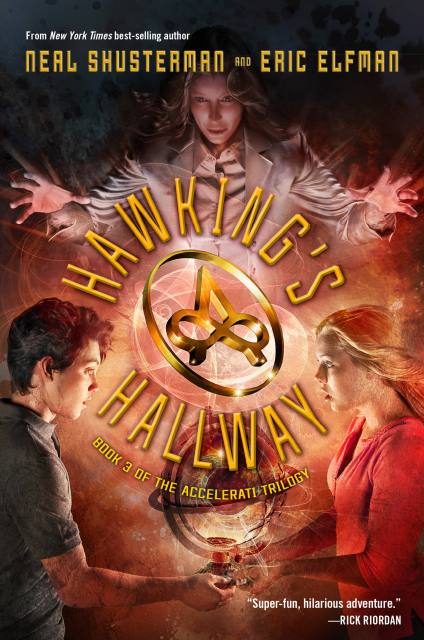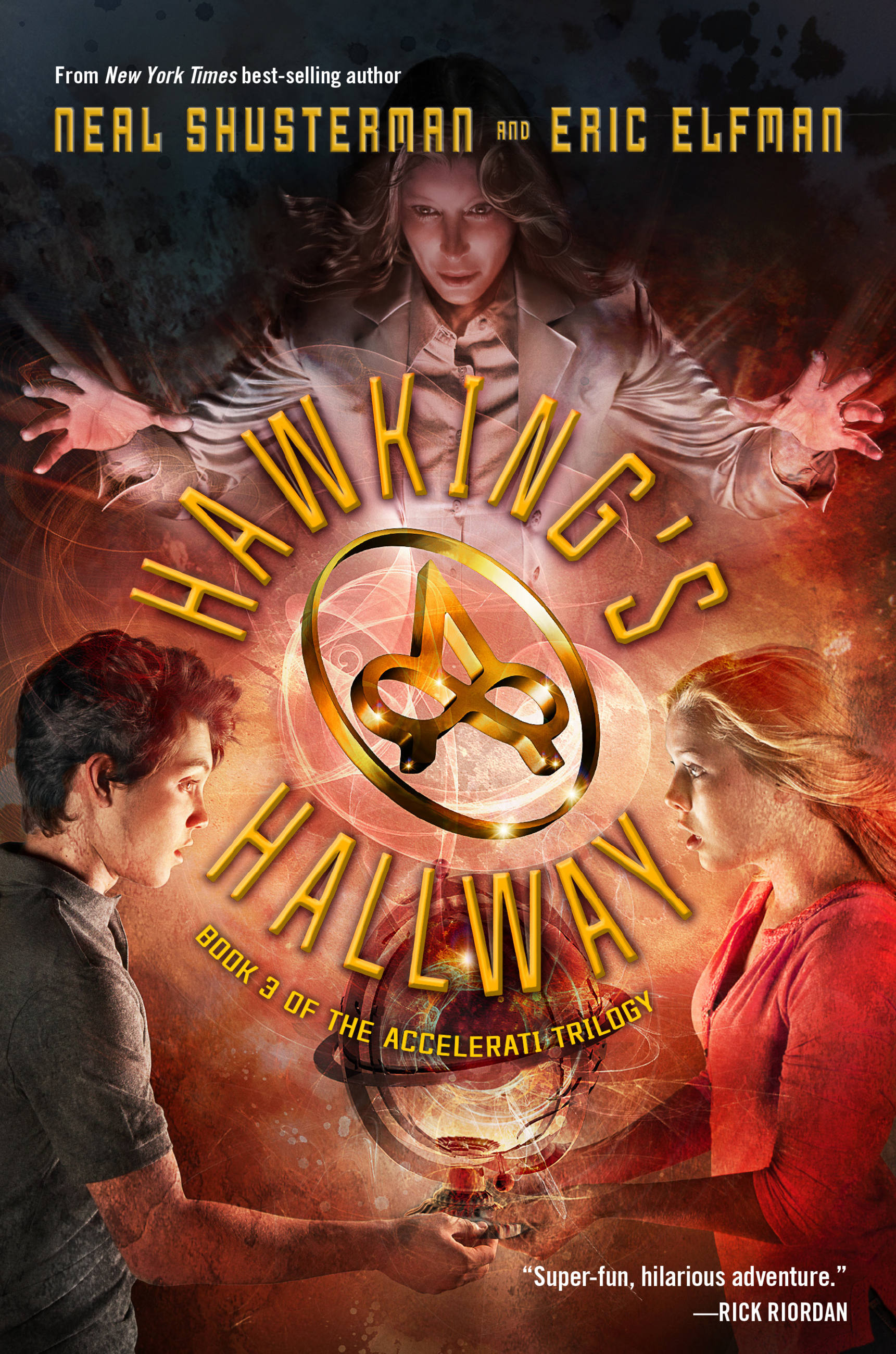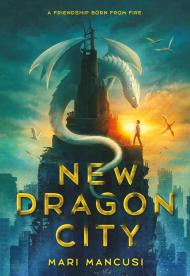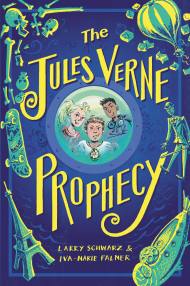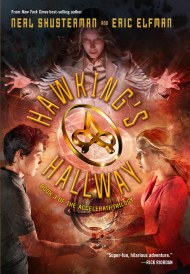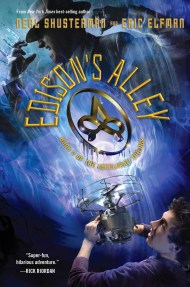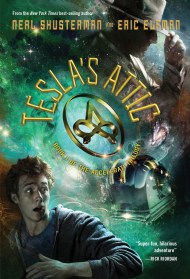Promotion
Use code MOM24 for 20% off site wide + free shipping over $45
Hawking's Hallway
Contributors
By Eric Elfman
Formats and Prices
Price
$7.99Price
$9.99 CADFormat
Format:
- ebook $7.99 $9.99 CAD
- Hardcover $16.99 $17.99 CAD
- Trade Paperback $8.99 $12.99 CAD
This item is a preorder. Your payment method will be charged immediately, and the product is expected to ship on or around February 9, 2016. This date is subject to change due to shipping delays beyond our control.
Also available from:
Nick Slate, in order to protect his father and little brother, reluctantly must help the Accelerati complete Tesla's great device. Their power-mad leader wants nothing less than to control the world's energy — but there are still three missing objects to track down.
Nick's friends can't help him, as they are spread across the globe grappling with their own mysteries — with Vince in Scotland, Caitlin and Mitch on their way to New Jersey, and Petula's whereabouts unknown. On his own, Nick must locate Tesla's final inventions — which are the most powerful of all, capable of shattering time and collapsing space.
Read more in the Accelerati Trilogy:
Tesla's Attic
Edison's Alley
Genre:
-
Praise for Tesla's Attic:Kirkus Reviews
"Lively, intelligent prose elevates this story of teenagers versus mad scientists, the third-person point of view offering a stage to various players in their play of galactic consequence. A wild tale in the spirit of Back to the Future, with a hint of Malamud's The Natural tossed in." -
"This collaboration between Shusterman and Elfman tempers the scarier elements of Nick's quest with deft, humorous writing and plenty of the ordinary adventures of a new kid in school finding his niche. Hand this one to fans of Rick Riordan's Kane Chronicles or Kenneth Oppel's Airborne."Booklist
-
* "Shusterman and Elfman have crafted a plot more devious, characters far quirkier, climaxes (yes, there are two) more breathless, and a narration much, much funnier than recent mad-science offerings. Sticking with a third-person narration frees the authors to be as wryly and sophisticatedly witty as they please without compromising the veracity of their middle-school cast, resulting in storytelling as delightful as the story being told."BCCB, starred review
- On Sale
- Feb 9, 2016
- Page Count
- 256 pages
- Publisher
- Little, Brown Books for Young Readers
- ISBN-13
- 9781423155225
Newsletter Signup
By clicking ‘Sign Up,’ I acknowledge that I have read and agree to Hachette Book Group’s Privacy Policy and Terms of Use
